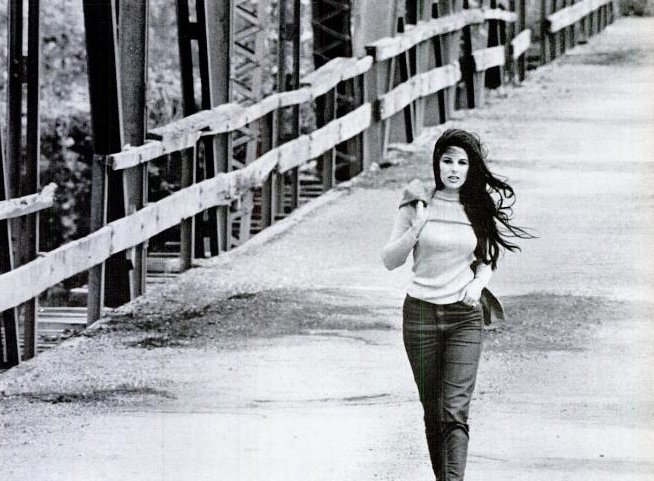In the summer of 1967, Bobbie Gentry went from being a nightclub songstress in Las Vegas to an international pop sensation with the hit "Ode to Billie Joe," a pseudo-Southern Gothic ballad that drew the nation's attention to the soulful, husky-voiced Delta queen. The album "Ode to Billie Joe" topped the pop charts for four weeks in August 1967, knocking "Sgt. Pepper's Lonely Hearts Club Band" off its 15-week reign at #1 on Billboard's.
Last week, on Nov. 14, Gentry's native state honored her career by giving the artist a permanent place on the Mississippi Country Music Trail in the form of a marker in Greenwood that will commemorate her success as a country-music crossover from the Mississippi Delta.
Gentry, born Roberta Lee Streeter in 1944, grew up in humble beginnings on her grandparents' farm in Chickasaw County. The story goes that her grandmother actually sold one of her milk cows for a neighbor's piano, which Bobbie taught herself how to play by watching a church-choir pianist on Sundays. She moved to California to be with her mother as a teen and soon began performing a local clubs as "Bobbie Gentry," a surname she borrowed from the movie "Ruby Gentry"—a 1952 film that tells the story of a poor, young woman who faces conflicting feelings after marrying a rich man.
The aspiring singer spent time studying philosophy at UCLA and music at the Los Angeles Music Conservatory before recording a demo that found its way to Capitol Records producer Kelly Gordon. He signed Gentry to the label and recorded "Ode to Billie Joe" in 1967.
"Ode to Billie Joe" was a debut album that's known primarily for its B-side titular track, but it has a deeper importance in its legacy as a self-made, genre-crossing work that poured through with vignettes of the Mississippi Delta—scenes and lyrics that Gentry herself wrote and helped produced.
Gentry won three Grammy awards in 1968, including Best New Artist and Best Female Vocal, and also took home the Academy of Country Music's Best New Female Vocalist Award that same year.
She went on to make more albums in the late '60s, including "The Delta Sweete" (1968) and "Touch'em With Love" (1969). She also became known in the '70s for her collaborations with singer Glen Campbell. She starred on CBS' "The Bobbie Gentry Happiness Hour" in 1974, a variety show that lasted four episodes as a replacement series that summer. Gentry also helped co-write the 1976 film adaption of her hit, "Ode to Billie Joe."
The singer retired from performing in 1982, but her legacy lives on today in her hauntingly soulful interpretation of her rural upbringing and her mysterious good looks and charm. She blended elements of blues, gospel, country, and pop to create her own sound and has gone largely unrecognized for her deft songwriting skills and musical ingenuity. Now 69, she lives in Los Angeles.
You can see the Bobbie Gentry marker at 1400 Grand Blvd. in Greenwood. To find more sights of interest on the Mississippi Country Music Trail, check out their website.



Comments